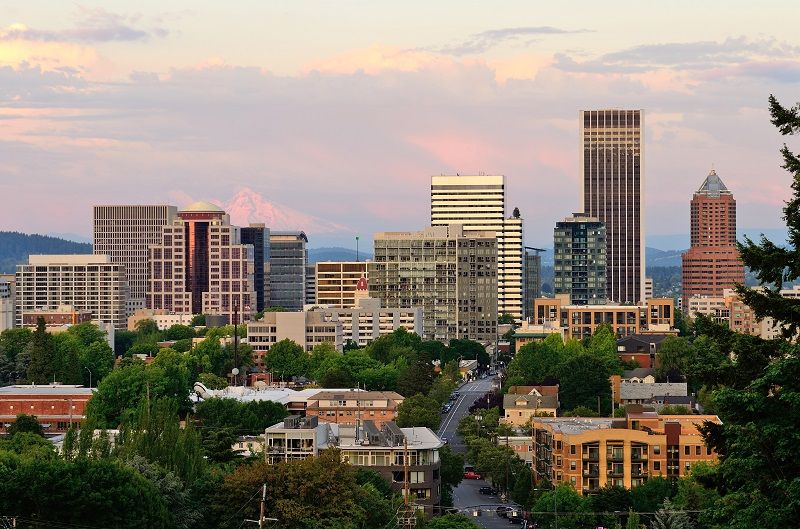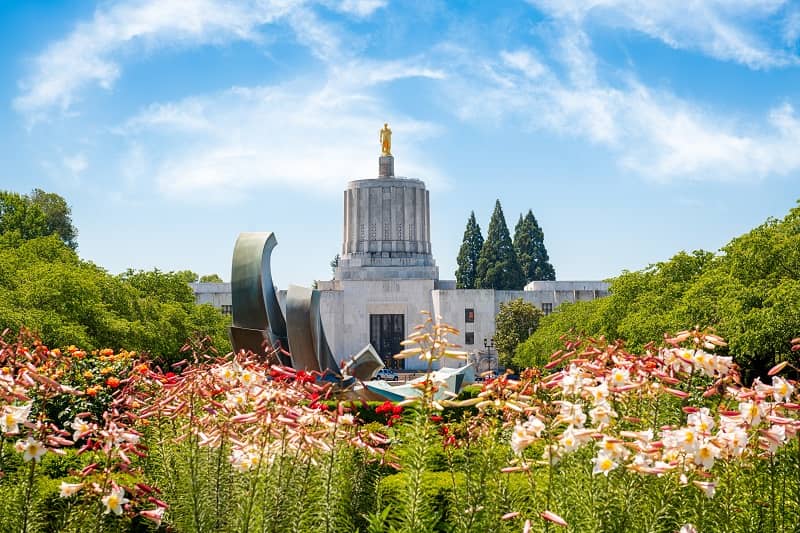![]() Click here to read the full report in PDF format
Click here to read the full report in PDF format
Summary: Cascade Policy Institute announces the establishment of the Rural Oregon Freedom Project. Cascade will work with rural communities and the state legislature to remove barriers inhibiting rural economic opportunity and to advance balanced and creative approaches to rural community issues.
For more than twenty years, rural Oregon has been caught in a never-ending game of “Twister.” The Oregon state legislature, under the influence of Portland, has been acting as the game master, spinning the pointer and making the call of “left hand on green” or “right foot on yellow.” The question is, are we coming to the end of the game for rural communities in Oregon? All games of “Twister” end with the collapse of twisted bodies (or in this case rural communities) after a number of impossible maneuvers called by the game master.
In order to assist Oregon’s rural communities, Cascade Policy Institute is pleased to announce the establishment of the Rural Oregon Freedom Project. The program’s objective is to work with rural communities and the state legislature to remove barriers inhibiting rural Oregon’s economic opportunities.
Oregon has a dismal unemployment rate of 12.2%. Yet, rural Oregon faces steeper unemployment rates, as high as 22.6% in Crook County. Unfortunately, rural communities have little flexibility to address these discouraging numbers in a creative manner, due to a long history of command and control from the legislature. Most rural counties in Oregon have a base in the renewable natural resource industries of forestry and agriculture. However, since the start of the environmental movement, Oregon leaders have been pushing rural communities to focus on other economic drivers. Must we keep asking rural communities to twist into urban Oregon’s idea of conformity, or can they begin to dictate their own future? Cascade will work with local communities to help them create their own opportunities and manage their resources locally.
Natural resource based economies can be volatile, but that does not mean communities should abandon those types of economies. The forest products industry is being hit hard by this recession, but so are many other industries. Tough economic times can bring about amazing innovation and efficiencies within industries. The critical issue renewable natural resource based communities are facing is the unpredictability of raw product supply. Federal and state timber and grazing management plans take years to be adopted and then are often challenged in court for several more years. Without consistent supply of product, the incentive for innovation is greatly weakened. If companies can see nothing but continued challenges and instability even when the economy stabilizes, there is little incentive for them to ride out bad economic times or to invest in additional infrastructure.
Rural folk understand both the economic and the natural environments they live in and are capable of creating a viable future for themselves. Power must be given to communities to create their own destinies. Areas like Wallowa County, which took an aggressive approach to planning through the development of the Wallowa County Economic Action Team, should be allowed to implement their plan without hindrances. Other communities, like Douglas County, should be provided with any assistance they request in an effort to work with the federal government to develop a new plan to manage resources like the Oregon and California Railroad grant lands. These lands, commonly referred to as O&C lands, no longer have a viable forest management plan to sustain the communities directly affected by the withdrawal of the Western Oregon Plan Revision.
Instead of being based in renewable natural resources, rural communities are told by legislation or by lawsuits from outsiders to create an economy based on the trends of the moment. Those communities should be given the opportunity to create their own vision and economy based on a diversified and balanced multiple use approach. The Rural Freedom Project will work at the state and the federal levels to address policies that hinder balanced and creative approaches to natural resource issues.
Rural Oregon communities aren’t in existence to provide a playground for urban Oregonians to visit and feel good about preserving them. Rural Oregonians are hardworking entrepreneurs with a pioneer spirit who desire the freedom to create a future and to cultivate the communities they envision. It is time to consider how Oregon can provide greater deference to the vision rural communities have for their future and provide them with the tools to implement those ideas successfully.
Whether through eco-tourism, improving health care options, multi-use opportunities on public lands, flexibility with land use zoning, access to better broadband, enhancing agriculture and forestry industries or any combination of economic opportunities, local communities should be given the spinner and allowed to become their own game master. Cascade’s Rural Freedom Project is designed to return to rural Oregonians the opportunity to control their own future.











